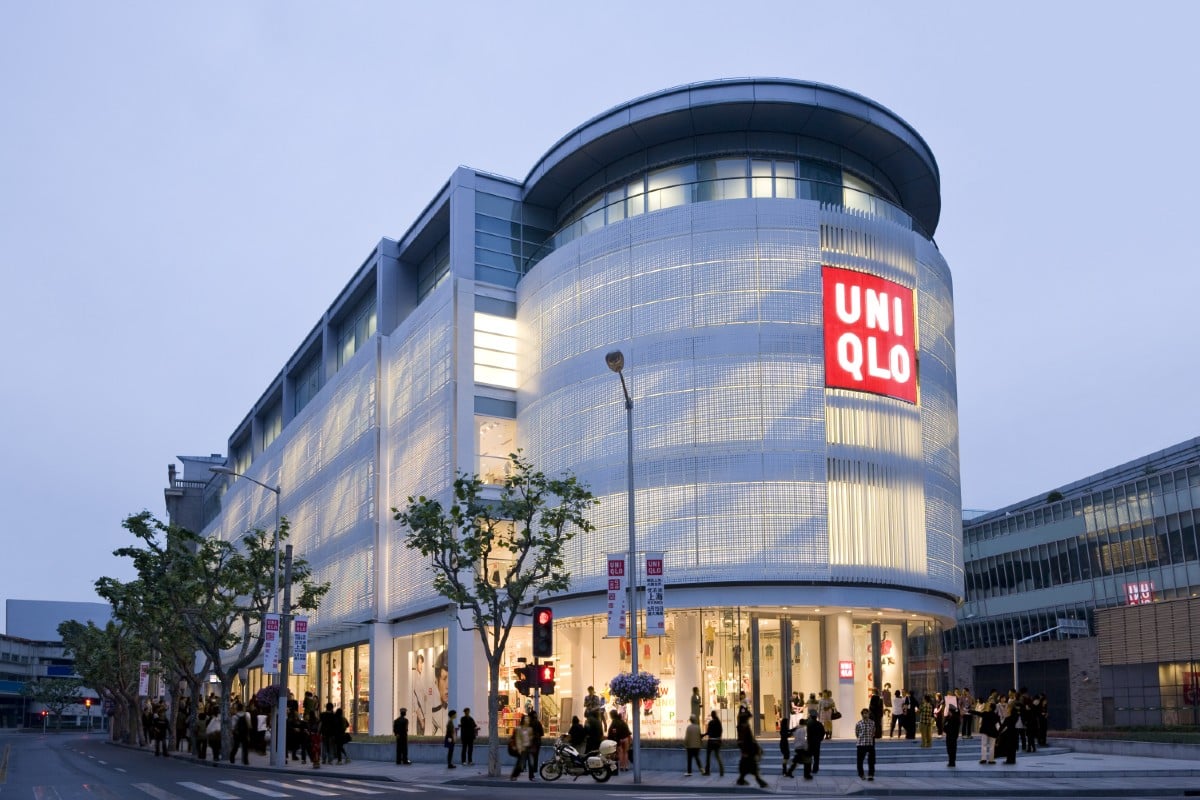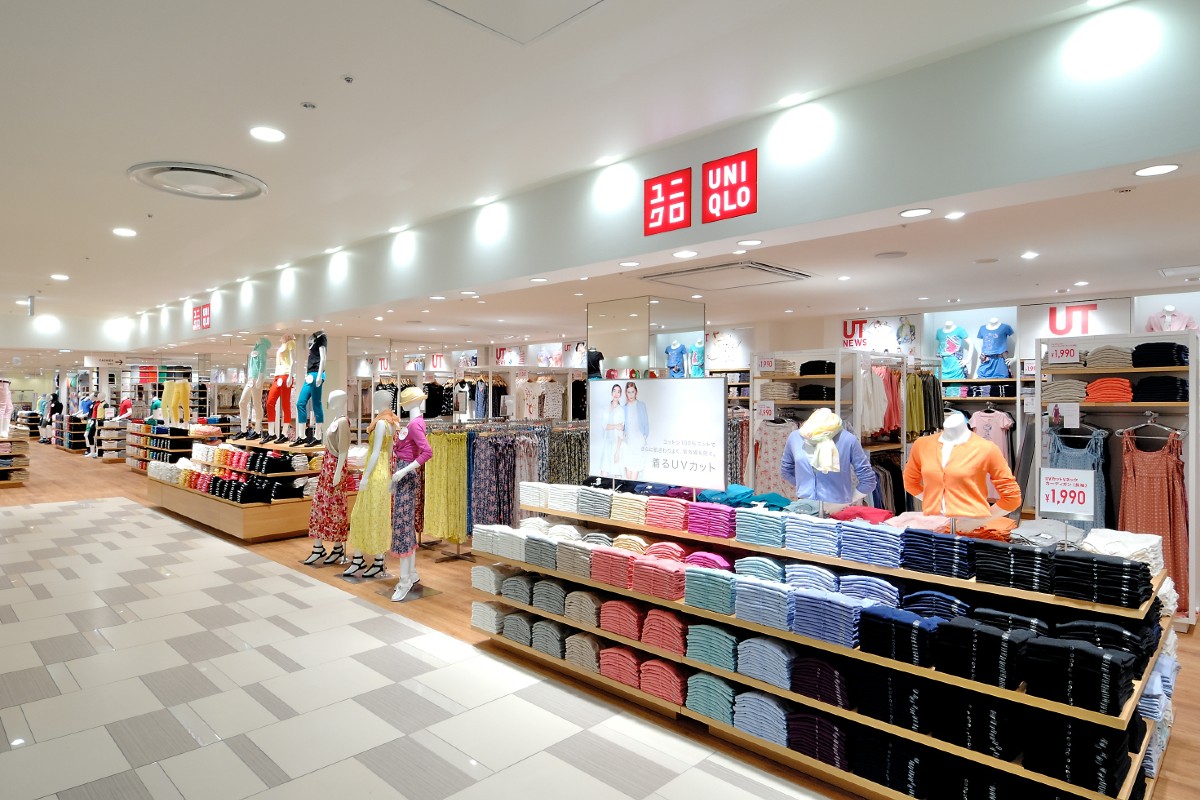Over the past decade, Japanese fashion brand Uniqlo has achieved a meteoric rise to the top. But Founder and CEO Tadashi Yanai admits that both he and the company have experienced more than their fair share of failures.
There seems to be a certain formula to how some of the world’s greatest entrepreneurs approach their daily dressing. From Steve Jobs and his black turtleneck, jeans and New Balance sneakers combo to Mark Zuckerberg’s famous grey Brunello Cucinelli T-shirt, many brilliant brains re-wear garments to avoid decision fatigue.
It’s not surprising then, that Japan’s richest person, the Founder and CEO of fashion giant Uniqlo (worth an estimated US$12.88 billion), Tadashi Yanai, has just two outfits in regular rotation – a US$15 navy-blue Merino-wool crew-neck jumper and a +J blue suit from Uniqlo’s collaboration with German designer Jil Sander.
His commitment to these unassuming ensembles may seem at odds with the man behind one of the world’s most successful fashion houses, however, upon closer inspection, these inherently Japanese principles of “practical beauty” and “simple made better” ultimately underscore his company’s entire philosophy.
You might not be able to pick out his designs in a crowd, but that’s part of Uniqlo’s appeal – to provide chic, timeless, high-quality basics that can be worn year in, year out, blending seamlessly with the rest of your wardrobe.
For Yanai, the complexities of retail were innate even as a young boy – deeply ingrained learnings from a childhood spent working in the men’s clothing store owned by his father in the small town of Ube.

However, Yanai couldn’t help but rebel against the predetermined path for him to follow in his father’s footsteps. He concedes that for many years working in the family business or pursuing a career in fashion was far from his mind.
After graduating from Waseda University in 1971 with a degree in economics and political science, and having spent a few years working for a supermarket chain and travelling the world, Yanai finally returned to his father’s shop, then called Ogori Shoji.
The first few years proved to be a steep learning curve for Yanai, a crash course in running a business.
“I needed to clean the store, brush the jackets, (do the) sourcing – I literally had to do everything myself because there was nobody else,” he told the Business of Fashion in 2016. “It was a huge learning opportunity.”
“I believe that the founder of a company never truly retires.” – Tadashi Yanai
By 1984, Yanai had taken the reins as CEO. He had big ideas and an even bigger plan for (fashion) world domination. He established the first branch of the Unique Clothing Warehouse (which would later change to the contraction Uniqlo) in Hiroshima.
Inspired by European and American brands such as Benetton, Gap and Esprit that he’d seen during his travels, Yanai set to work transplanting the model of mass-made casual apparel chains into Japan. In 1991, he changed the company name from Ogori Shoji to the more globally identifiable Fast Retailing, a nod to the fast-food prototype.
By 1998, Uniqlo had more than 300 stores across Japan, and their infamous fleece jacket had sold two million units in just 12 months. Business was booming and, for all intents and purposes, Uniqlo was kicking profit goals and gaining notoriety across Japan.
However, in spite of its popularity, the brand had gained the unflattering reputation of “cheap and shoddy”. Determined to turn things around, Yanai embarked on a mission to revamp Uniqlo’s image.

In 2004, the company announced its Global Quality Declaration, a pledge to stop making low-priced, low-quality garments. “I want to be valued for offering good clothes,” Yanai said at the time. “To be known for being cheap is sad.”
Innovation was heralded as Uniqlo’s new number one priority. Cashmere was added to their regular offering, as were thermal garments made from a new internally developed fabric named HeatTech.
Each year, the products improved in imperceptible ways. In 2005, Fast Retailing adopted a holding company structure, making Uniqlo a wholly owned subsidiary which Yanai also heads up as CEO.
Today, the Founder has succeeded in his goal to make Uniqlo “the first truly global clothing brand from Asia” with 2,200 stores in 22 countries, and Fast Retailing (whose brands now include Theory, Helmut Lang and J Brand among others) is on track to perhaps surpass its main competitors, industry giants Zara and H&M, within the next few years.
“To succeed in this environment, you need to make mistakes, fail, learn from them and move on.” – Tadashi Yanai
Uniqlo was awarded Retailer of the Year by the World Retail Congress in 2014, while Yanai was named as one of the 100 most influential people in the world by Time magazine in 2013 and one of the 100 greatest entrepreneurial minds by Forbes in 2017.
While he’s been alluding to possible retirement for nearly a decade now, Yanai shows no signs of slowing down anytime soon. “I believe that the founder of a company never truly retires, and my passion for business remains as strong as ever,” he said in a statement released in March.
“Having said that, my most important job is to nurture the next generation of leaders.” In particular, Yanai has expressed his desire for his successor to be female, saying, “The job is more suitable for a woman, (because they) are persevering, detail-oriented and have an aesthetic sense.”
As for his wealth, which is estimated at US$28.9 billion, Yanai insists he has no interest in money. “I would describe myself as a very average man,” he told The Financial Times in 2013.
“I’m not extraordinary. I don’t think I was cut out to be making all this money. I have long prioritised being fair, doing something good for society.”
He is also pragmatic about his success.
“I might look successful, but I’ve made many mistakes,” Yanai told Monocle . “People take their failures too seriously.” During his decades in the industry, the entrepreneur has discovered that above all else, businesses need to be adaptable – keeping in mind not just the unpredictable flux of fashion, but also the frenetically evolving society we live in.
However, few were ready for the damage COVID-19 would cause when it first swept the globe in March this year. In particular, the fashion industry as a whole suffered a near-fatal blow, and within a matter of weeks, retailers cancelled orders, shut the doors to their factories and halted production.
As many countries spiralled into the worst financial decline they’d faced since the Great Depression, few consumers were looking to spend their now-scarce disposable income on fashion items. Like the rest of the industry, Uniqlo took a hit, closing half of its 748 stores in China after lockdowns were enforced in January, and 40% of its Japan stores in May.
“I might look successful, but I’ve made many mistakes. People take their failures too seriously.” – Tadashi Yanai
All have since reopened and, rather surprisingly, Fast Retailing’s shares were up 53% in July since 19 March, and these look set to continue rising. Now, as other brands scramble to make up for lost revenue, Uniqlo has remarkably managed to come out on top once again – like a puffer-jacket-clad phoenix rising from the ashes.
Dairo Murata, senior analyst at JP Morgan in Tokyo, believes its immunity to the long-term effects of the pandemic is thanks in part to the fact that “it’s a supplier of ordinary life clothing and rooted in real demand”.
Indeed, Uniqlo has always been dictated by product developments, rather than trends. It’s also undoubtedly a result of Uniqlo’s enduring quest for innovation. Yanai has long voiced his opinion that Uniqlo is “not a fashion company, (but) a technology company”.
And given their tech-style approach to both research and operations, it’s hard not to agree. In June, they launched AIRism, a range of facemasks that flew off the shelves. And as it looks increasingly likely that working from home will continue long into the future, Uniqlo’s luxe loungewear and cosy separates are remaining high on customers’ lust lists.
Yanai’s unwavering determination, drive and grit have propelled his company through myriad challenges, global recessions, the initial failures of opening international stores, and now, a pandemic.
And each time, rather than conceding defeat, he has battened down the hatches to weather the storm, ready to find new solutions and always emerging ready to take on the next chapter.
“The world is constantly changing,” he told The Star in 2010. “To succeed in this environment, you need to make mistakes, fail, learn from them and move on.”
















